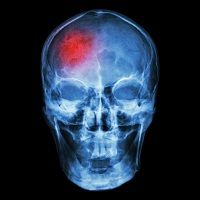Migraine Medications Underprescribed for Unsupported Risks
Stroke and cardiovascular risks have been associated with the most common and effective classes of drugs to treat migraines, but new research shows that these concerns could be unjustified.

Stroke and cardiovascular risks have been associated with the most common and effective classes of drugs to treat migraines, but new research shows that these concerns could be unjustified.
There is a black box warning on triptan and Dihydroergotamine (DHE) medications for the risk of stroke in two subtypes of migraine. The new study found that patients given the drugs off-label did not have these side effects, suggesting that millions of migraine sufferers are potentially missing out on pain relief.
Some commonly prescribed triptans include sumatriptan (Imitrex and Alsuma) and naratriptan (Amerge), eletriptan (Relpax). DHE medications include D.H.E. 45 and Migranal.
“There are not enough medicines out there to appropriately manage migraine headaches,” senior author Brad Klein, MD, medical director of the Headache Center at Abington Hospital-Jefferson Health, said in a news release.
It’s believed that migraines occur because they cause swelling in the blood vessels that feed the brain. But it’s believed that two subsets of headaches — basilar and hemiplegic – do the opposite by constricting the blood vessels. This is where triptans and DHE come into play – they help to constrict blood vessels to relieve migraine. However, there was concern that these medications would increase stroke risk in those with basilar and hemiplegic migraines, since the conditions cause constricting already.
- Related: Study Debunks Connection Between Migraine and Stroke Predictors
Klein and researchers from the Brigham and Women’s Hospital studied these subsets of patients who were previously left out of initial trials.
“At a time in history when an unprecedented number of people are getting hooked on narcotic opiates by way of prescribed medications — as is the case with migraine sufferers as well – we owe it to ourselves as physicians to try medications that could work without the risk of addiction,” Klein continued.
In the largest patient cohort examining this topic to date, the researchers analyzed 80 patients with basilar or hemiplegic migraine. The 67 basilar and 13 hemiplegic migraine patients received either a triptan or DHE treatment and were tracked for several months.
There were no cases of stroke or heart attack during the follow-up period, according to the report published in Headache. Five patients from each medication group reported adverse effects, including rash, chest tightness, and GI issues.
These findings imply that triptans and DHE drugs are safe for a subset of people with migraines, but future research can help determine if other people with migraine can benefit from the medications. The problem is that it was just assumed that these drugs were dangerous as opposed to actually having evidence to back it up.
“Because auras are associated with basilar and hemiplegic migraine, many physicians refuse to give these drugs to any patients experiencing an aura out of a false sense of precaution,” Klein concluded.
This research is a step in the right direction to confirm or debunk such beliefs in more people with different types of migraine.
Also on MD Magazine >>> Acetaminophen Makes People a Little Bit Heartless